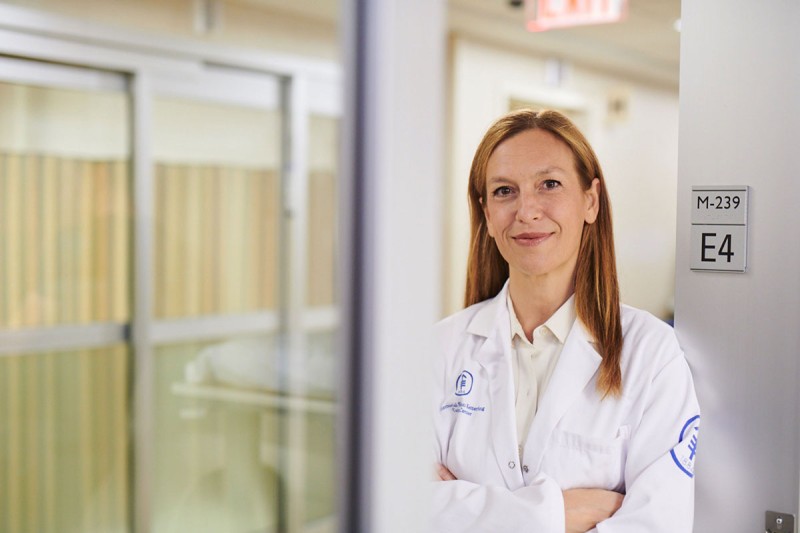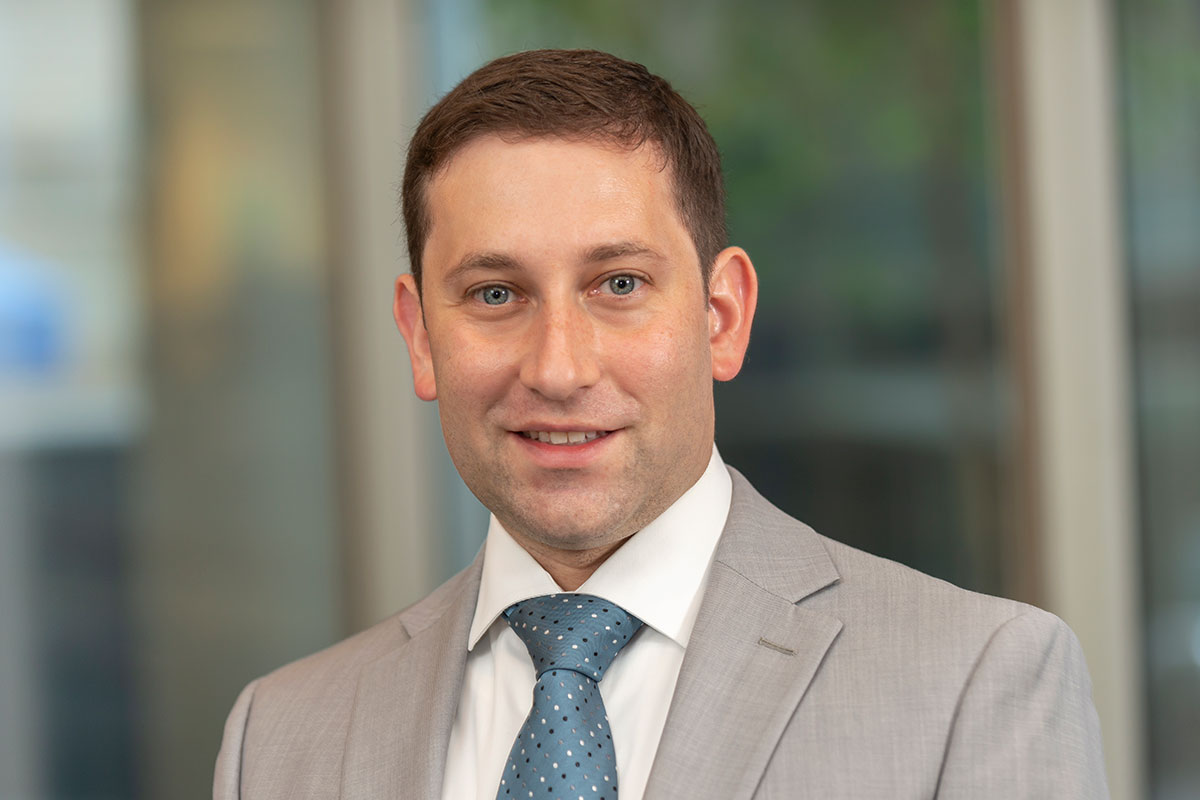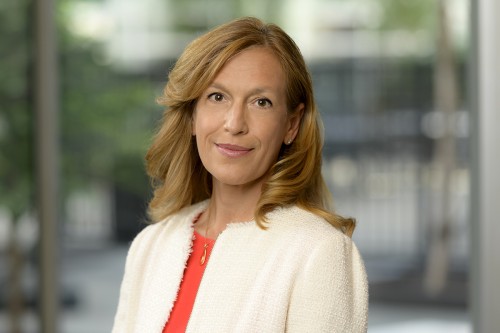
You’ve probably seen TV commercials for over-the-counter heartburn medications that feature diners clutching their chests after eating a big meal. But you may not know that heartburn can be a symptom of gastroesophageal reflux disease (GERD), a severe form of acid reflux that — if left untreated — can ultimately lead to esophageal cancer.
Although still considered rare, adenocarcinoma of the esophagus, the most common form of esophageal cancer, is one of the fastest-growing cancers in terms of incidence. Indigestion — a broad term that includes heartburn, acid reflux, abdominal pain, and other gastrointestinal symptoms — can be a first sign.
“When patients come to me after they find out they have esophageal cancer, the number one thing they say to me is, ‘I wish I had known that GERD is related to cancer,’ ” says Memorial Sloan Kettering Cancer Center (MSK) surgeon Daniela Molena, Director of the Esophageal Surgery Program. “Most of them have had GERD for a long time, sometimes decades.”
Is GERD Dangerous? How Does It Progress to Cancer?
GERD develops when acid that digests food in the stomach washes up into the esophagus. Often it occurs when people overeat or lie down too soon after eating. It may also be caused by defects in the valve that connects the esophagus to the stomach or by a condition called hiatal hernia, which is when the upper part of the stomach pushes up through the diaphragm and into the chest. The disease is most frequent in middle-aged and older white men, especially those who are overweight. While GERD is a risk factor for esophageal cancer and a symptom of a very rare subtype of pancreatic cancer, it is not associated with other types of cancer, like colon cancer, stomach cancer, or lung cancer.
Antacids can help with symptoms but can’t prevent GERD. These medicines have undergone changes in recent years. In 2020, the U.S. Food and Drug Administration (FDA) recalled ranitidine (Zantac) due to concern it contained a possible cancer-causing ingredient. Today, a reformulated version, famotidine (Zantac 360º®) is available.
After someone has had GERD for many years, it can advance to a condition called Barrett’s esophagus. “Barrett’s is a defensive mechanism of your esophagus,” explains Dr. Molena, who practices at MSK in Manhattan as well as at MSK Monmouth in Middletown, New Jersey. “When the esophagus is bathed in acid all the time, it wants to protect itself, and so the cells in the lining begin to change. These changes can advance to become cancer.”
If patients develop Barrett’s esophagus, their GERD symptoms often disappear. “It’s typical for patients with esophageal cancer to tell me that they suffered from GERD for years, but then it went away and they stopped taking their GERD medications, which would have actually reduced their cancer risk,” Dr. Molena says.
Not everyone with GERD has the typical symptoms, which are heartburn and regurgitation soon after eating. Up to 20% may have different symptoms, such as coughing or chest pain, a sore throat or hoarse voice, or even frequent sinus infections. It’s important to talk to your doctor about any of these symptoms.
Should We Screen for Esophageal Cancer in Everyone With GERD?
Experts say no. Even in people with GERD, esophageal cancer is still rare. It occurs in about 17,000 people in the United States each year.
However, Dr. Molena says, some people should talk with their doctor about having an endoscopy — a test in which a long tube with a tiny camera attached is inserted into the mouth and down the esophagus — to look for Barrett’s esophagus. This includes people who have had GERD for more than 10 years (especially those whose reflux disease started when they were very young), white males over 50, and those who have a hiatal hernia or are overweight. Endoscopies are done under local anesthesia.
MSK’s Barrett’s Esophagus Screening Program
Only a small number of people with Barrett’s esophagus will ultimately develop cancer. But for people who have Barrett’s with no dysplasia (precancerous cells), MSK experts recommend an endoscopy every three to five years. We offer a screening program for these patients, and 99% of them are able to avoid surgery and cancer.
Treatment and Prognosis for Esophageal Cancer
For those who do have esophageal cancer, MSK uses treatments that are tailored to each individual patient. Most patients with cancer just in the esophagus region eventually require surgery, and the vast majority are able to have it through minimally invasive techniques such as laparoscopy or robotic surgery. These approaches result in shorter recovery times and fewer side effects. Having chemotherapy and radiation before surgery can shrink a tumor if it has not spread.

If a patient has already had treatment and doctors still see evidence of cancer on the tissue that was removed, a promising and newly FDA-approved approach adds immunotherapy to help.
“We saw that patients stayed disease-free for twice as long,” says MSK medical oncologist Ryan Sugarman, who practices at MSK in Manhattan as well as at MSK Nassau in Uniondale, New York. “That means that if the cancer were to come back, it took twice as long to do so. It’s really exciting to this see this kind of progress.”
Immunotherapy also has the potential to help when esophageal cancer has spread to other organs, Dr. Sugarman adds. Another newly FDA-approved approach combines the immunotherapy drug nivolumab with chemotherapy to slow the cancer’s spread.
And there are other reasons for optimism. MSK experts are finding ways to deliver radiation more precisely to avoid affecting normal tissue, plus using genetic testing to identify which patients may benefit from clinical trials with targeted therapies. “Treatment for esophageal cancer has improved dramatically in the past few years,” Dr. Molena says.
Dr. Sugarman adds that MSK’s team approach and disease-specific expertise give patients the best hope for a good prognosis. “Esophageal cancer is rare,” he says, “but at MSK, it’s not. We have a team of experts who are highly experienced and offer cutting-edge treatment.”
- Although it’s still considered rare, adenocarcinoma of the esophagus is one of the fastest growing cancers.
- Middle-aged and older white men who are overweight are at greatest risk of developing the disease.
- A screening programs for those most likely to develop esophageal cancer is available at MSK.
- New treatments offer hope for people with newly diagnosed and advanced disease.





